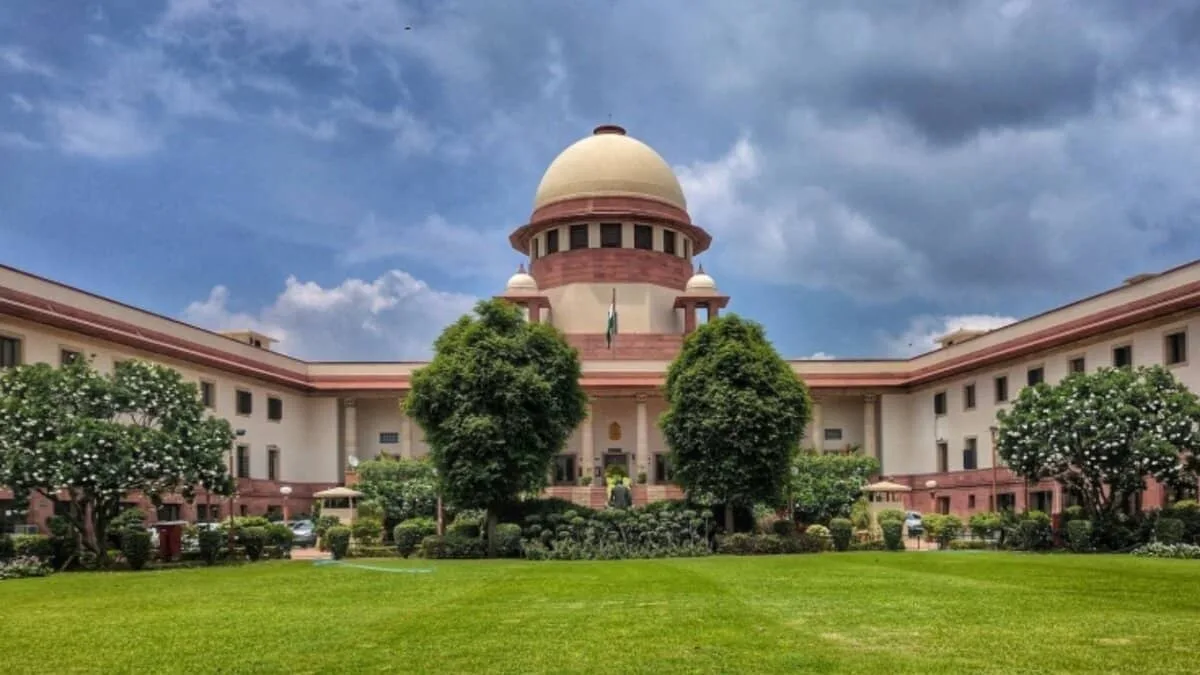New Delhi: The Supreme Court on Monday reserved its verdict on pleas including one of the Telangana government against an order that struck down its domicile rule for admissions in medical colleges in the state.
The state government through the Telangana Medical and Dental Colleges Admission (Admission into MBBS & BDS Courses) Rules, 2017, amended in 2024, entitled only those students, who have studied for last four years up to Class 12 in the state, to admissions in the medical and dental colleges under the state quota.
The Telangana High Court held that the state’s permanent residents cannot be denied benefits of admissions in the medical colleges only because they lived outside the state for sometime.
On Tuesday, a bench comprising Chief Justice B R Gavai and Justice K Vinod Chandran heard detailed arguments from both sides, including the Telangana government’s counsel, senior advocate Abhishek Singhvi.
Defending the state’s four-year domicile criterion, Singhvi said once a domicile rule is established, “a threshold becomes inevitable”.
He said Telangana relied on a government order backed by a presidential order and, moreover, only the state government, not courts, could define “permanent residence”.
The CJI referred to the practical consequences of the rule, illustrating if “a Telangana judge is transferred to Bihar and his son studies in classes 9, 10, 11 and 12 in Bihar then the boy is disentitled from getting admissions in his home state”.
“Take a student born and raised in Telangana but moves away for just classes 10 and 11 and say, to Kota for coaching. Or an IAS officer from Telangana posted in Delhi, whose child studies outside the state for two years. Should such children be disqualified?” the CJI asked.
Justice Chandran weighed in, “If a person remains idle in Telangana for four years, they qualify. But someone who leaves to study doesn’t. Isn’t that an anomaly?”
Singhvi said the high court created the term “permanent resident,” which only the state has the authority to define.
The top court on September 20 last year stayed the high court order directing permanent residents or those domiciled in the state couldn’t be denied the benefit of admission in the medical colleges only because they remained outside Telangana for sometime for their studies or residence.
The state government, however, agreed to grant a one-time exception to 135 students, who had moved the high court, in admissions in the medical and dental colleges in 2024.
The state’s appeal argued that the high court erroneously held Rule 3(a) of the amended Telangana Medical and Dental Colleges Admission (Admission into MBBS & BDS Courses) Rules, 2017, to be interpreted to mean the respondents (candidates) were eligible to admission in the medical colleges in Telangana.
The rule mandated four consecutive years of study in the state for students seeking admission in Telangana medical colleges before qualifying the exam.
The state’s plea argued such an order by the high court overlooked the fact that Telangana possesses the legislative competence to determine various requirements, including domicile, permanent resident status, etc.
The high court’s judgement, it said, mandates the state to prepare new rules for admission, which was a time-intensive process.
“After framing the rules students have to apply and collect the requisite certificates from authorities concerned. Each certificate submitted by the student needs to be verified by the Health University. Whereas the present rule prescribes that the students can produce their educational certificate without approaching any office or authority. If the judgement of the high court is implemented, it will result in a huge delay in the allotment of seats to MBBS and BDS students,” the plea added.







